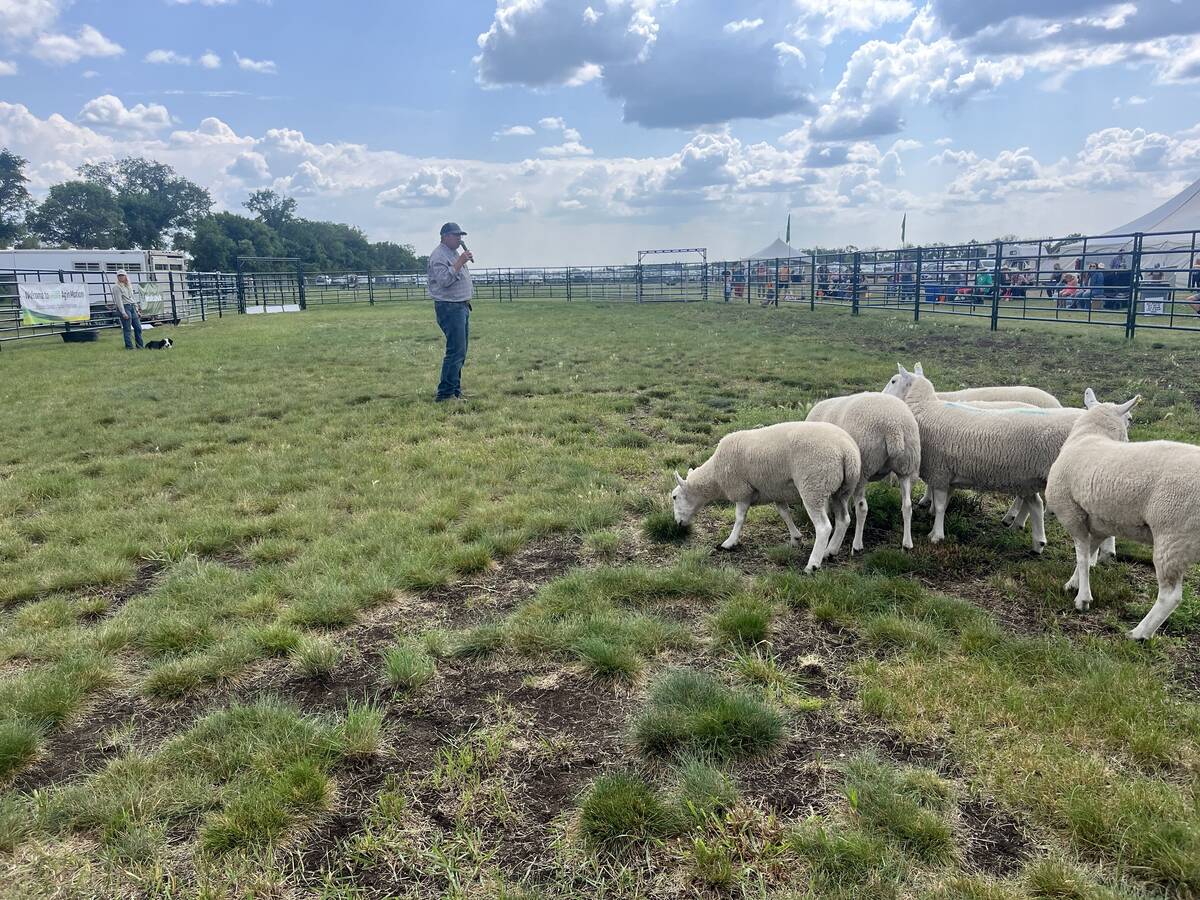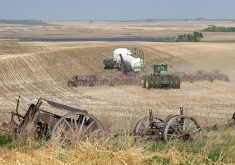A new place has been set at the agricultural research table of the University of Saskatchewan.
The Eco-Agriculture Enhancement Chair has been created through a $500,000 donation, over five years, by the hunting and conservation organization Ducks Unlimited Canada.
Brian Fowler, a research scientist at the University’s Crop Development Centre, will be the first to occupy the position.
“This is going to provide research money in an area that needs development. Winter wheat hasn’t received the same attention as some other crops and this will help us access the money needed to use the latest genetics technology for breeding the cereal,” he said.
Read Also

Stock dogs show off herding skills at Ag in Motion
Stock dogs draw a crowd at Ag in Motion. Border collies and other herding breeds are well known for the work they do on the farm.
Fowler said winter wheat has been limited because traditional plant breeding practices require 12 to 13 years to create new varieties. Genetic engineering can deliver a new variety in six years.
Developments in winter cereal research have produced improved varieties, but overall farm performance has lagged behind that of spring wheats. Fowler said the centre is moving toward making a winter wheat with the winter hardiness level of fall rye.
Fowler said using genetic engineering to identify weather regulators, proteins that cause plant protection systems to kick in, and then modify the plant’s system to turn on the appropriate genes, is the key to winter wheat’s success.
“With that, better disease resistance, drought tolerance and higher yields, winter wheat could represent 30 percent of cereals grown on the Prairies. Those are all elements we can improve on and farmers are going to have available much sooner because of this research initiative,” said Fowler.
Ducks Unlimited has long upheld the advantages of winter wheat as a spring nesting habitat for migrating water fowl.
As zero tillage regimes create more of a need for fall-seeded crops that can have an advantage over perennial weed populations and lessen the need for costly herbicide applications, winter varieties become more appealing to producers.
“Winter wheat crops remain relatively undisturbed in the spring. This means that birds get the opportunity to raise their young from early in the year,” said Don Young of Ducks Unlimited Canada.
Aylsham, Sask., farmer Lesley McCallum said producers are always aware of the environment around them.
“We live out-of-doors and respect the environment more than most people realize. It is our home, where we raise our children and any time we get the opportunity to grow a crop that enhances wildlife environments and makes money then we are going to do it … . Winter wheat gives us the chance to cut our risks of midge (orange blossom wheat midge) frost, early weeds and mid-season plant diseases, not to mention being able to compete with wild oats. Better varieties are going to mean more of it gets planted. Simple,” she said.
















